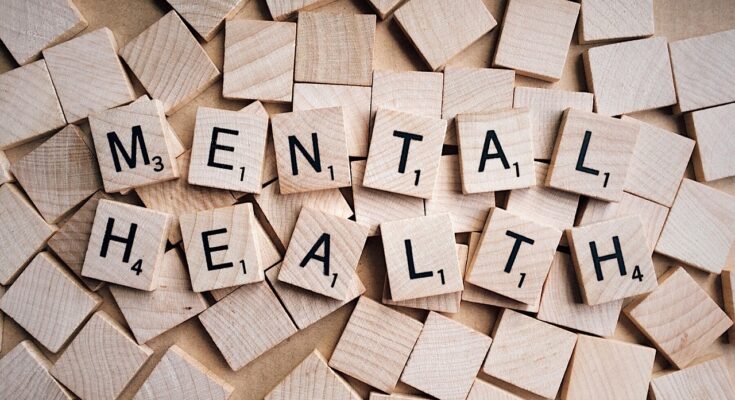Introduction:
Mental wellness plays a critical role in our overall well-being, influencing how we think, feel, and act in our daily lives. Yet, despite its importance, mental health is often overlooked or misunderstood. In a world where physical health takes center stage, the invisible struggles of mental wellness frequently remain in the shadows. This lack of awareness can lead to feelings of isolation and delay in seeking necessary help.
What exactly is mental wellness?
At its core, mental wellness is not merely the absence of mental illness but the presence of emotional, psychological, and social well-being. It encompasses the ability to cope with life’s challenges, maintain fulfilling relationships, and make meaningful contributions to your community.
When mental wellness is compromised, it can manifest in subtle or pronounced ways, impacting both personal and professional aspects of life. Recognizing the early signs and understanding how to seek a diagnosis are essential first steps towards recovery and building resilience. This article delves into the symptoms and diagnostic processes, shedding light on how to prioritize mental wellness for a healthier, more balanced life.
Symptoms of Mental Health Issues:
Mental health challenges can manifest in a variety of ways, often differing from one person to another. However, there are some common symptoms that can serve as red flags, signaling the need for attention and care. These symptoms fall into three broad categories: emotional, behavioral, and physical.
1. Emotional Symptoms:
- Persistent Sadness or Hopelessness: Feeling down or disheartened for extended periods without any apparent reason can indicate depression.
- Excessive Worry or Anxiety: Constant worry, panic attacks, or feelings of dread can interfere with daily life and signal anxiety disorders.
- Mood Swings: Experiencing extreme highs and lows, such as going from euphoric joy to deep despair, can be a sign of bipolar disorder or other mood-related conditions.
- Feelings of Guilt or Worthlessness: A sense of inadequacy or persistent self-criticism is a hallmark of several mental health disorders.
1. Behavioral Symptoms:
- Withdrawal from Social Activities: Avoiding friends, family, and social events may be an indication of depression, anxiety, or other issues.
- Changes in Sleeping Patterns: Insomnia, hypersomnia (oversleeping), or disrupted sleep cycles are often linked to mental health challenges.
- Substance Abuse: Turning to alcohol or drugs as a coping mechanism can exacerbate existing mental health problems.
- Difficulty Concentrating or Making Decisions: Struggling to focus or feeling mentally “foggy” can be indicative of underlying stress or mental health issues.
2. Behavioral Symptoms:
- Withdrawal from Social Activities: Avoiding friends, family, and social events may be an indication of depression, anxiety, or other issues.
- Changes in Sleeping Patterns: Insomnia, hypersomnia (oversleeping), or disrupted sleep cycles are often linked to mental health challenges.
- Substance Abuse: Turning to alcohol or drugs as a coping mechanism can exacerbate existing mental health problems.
- Difficulty Concentrating or Making Decisions: Struggling to focus or feeling mentally “foggy” can be indicative of underlying stress or mental health issues.
3. Physical Symptoms:
- Chronic Fatigue: Feeling constantly tired despite adequate rest may have psychological roots.
- Appetite Changes: Overeating or loss of appetite often accompanies emotional distress.
- Unexplained Aches and Pains: Physical discomfort without a medical cause can sometimes be linked to stress, anxiety, or depression.
It is crucial to remember that experiencing one or more of these symptoms does not necessarily mean you have a mental health disorder. However, prolonged or severe symptoms that interfere with daily functioning warrant further investigation.
Diagnosis of Mental Health Conditions:
Diagnosing mental health conditions can be complex due to the subjective nature of symptoms and the interplay between physical and psychological factors. However, with advancements in psychology and psychiatry, mental health professionals have developed reliable frameworks and tools to assess and diagnose various conditions.
1. Initial Assessment:
- Personal and Medical History: The diagnostic process often begins with an in-depth discussion about your personal history, including any family history of mental illness, medical conditions, and significant life events. Understanding your background provides essential context.
- Symptom Evaluation: A mental health professional will ask about the duration, frequency, and severity of your symptoms. They may use standardized questionnaires or scales, such as the Generalized Anxiety Disorder-7 (GAD-7) or the Patient Health Questionnaire-9 (PHQ-9), to measure specific issues like anxiety or depression.
2. Clinical Observation:
- Behavioral Analysis: Observing how you interact with others, respond to questions, and express emotions can offer valuable insights.
- Cognitive Assessments: Some professionals may conduct tests to evaluate memory, attention, or problem-solving abilities, particularly if cognitive decline is suspected.
3. Diagnostic Criteria:
- DSM-5 Guidelines: The Diagnostic and Statistical Manual of Mental Disorders, Fifth Edition (DSM-5), serves as the gold standard for diagnosing mental health conditions. It outlines specific criteria for a wide range of disorders, from depression and anxiety to schizophrenia and PTSD.
- ICD-11 Codes: In some cases, the International Classification of Diseases (ICD-11) is used for diagnostic coding and understanding co-occurring medical conditions.
4. Physical Examination and Lab Tests:
- Rule Out Medical Causes: Certain medical conditions, such as thyroid disorders, vitamin deficiencies, or chronic illnesses, can mimic or contribute to mental health symptoms. Blood tests or other physical examinations may be conducted to rule out such causes.
6. Trial and Error:
- Ongoing Monitoring: Mental health diagnosis is not always a one-time event. It may require ongoing evaluation, especially if symptoms evolve or new challenges arise. Treatment plans may also be adjusted based on your response to therapy or medication.
Conclusion:
Recognizing the symptoms of mental health challenges and seeking a professional diagnosis are essential steps toward improving mental wellness. While the journey may seem daunting, it is important to remember that mental health issues are common and treatable. Early intervention can significantly enhance the quality of life, allowing individuals to regain control and thrive.
By fostering awareness and breaking the stigma surrounding mental health, we can create a society where seeking help is normalized and mental wellness is prioritized. Whether it’s for yourself or a loved one, understanding the signs and taking proactive steps can make a profound difference. Remember, your mental health matters just as much as your physical health, and help is always within reach.





You made some decent points there. I looked on the web for the problem and found most people will go along with along with your website.
Attractive section of content. I just stumbled upon your website and in accession capital to assert that I acquire in fact enjoyed account your blog posts. Anyway I’ll be subscribing to your augment and even I achievement you access consistently rapidly.
Can I simply say what a reduction to search out someone who truly is aware of what theyre speaking about on the internet. You positively know how to carry a problem to gentle and make it important. Extra people need to learn this and perceive this aspect of the story. I cant imagine youre no more widespread because you positively have the gift.
I do not even know how I ended up here, but I thought this post was good. I do not know who you are but definitely you’re going to a famous blogger if you are not already 😉 Cheers!
There is perceptibly a bunch to know about this. I assume you made some nice points in features also.
I do enjoy the manner in which you have framed this particular matter plus it really does provide me personally some fodder for consideration. Nevertheless, coming from everything that I have experienced, I only trust as other reviews pile on that individuals remain on issue and don’t get started on a soap box associated with some other news of the day. Yet, thank you for this exceptional piece and while I do not concur with it in totality, I value your standpoint.